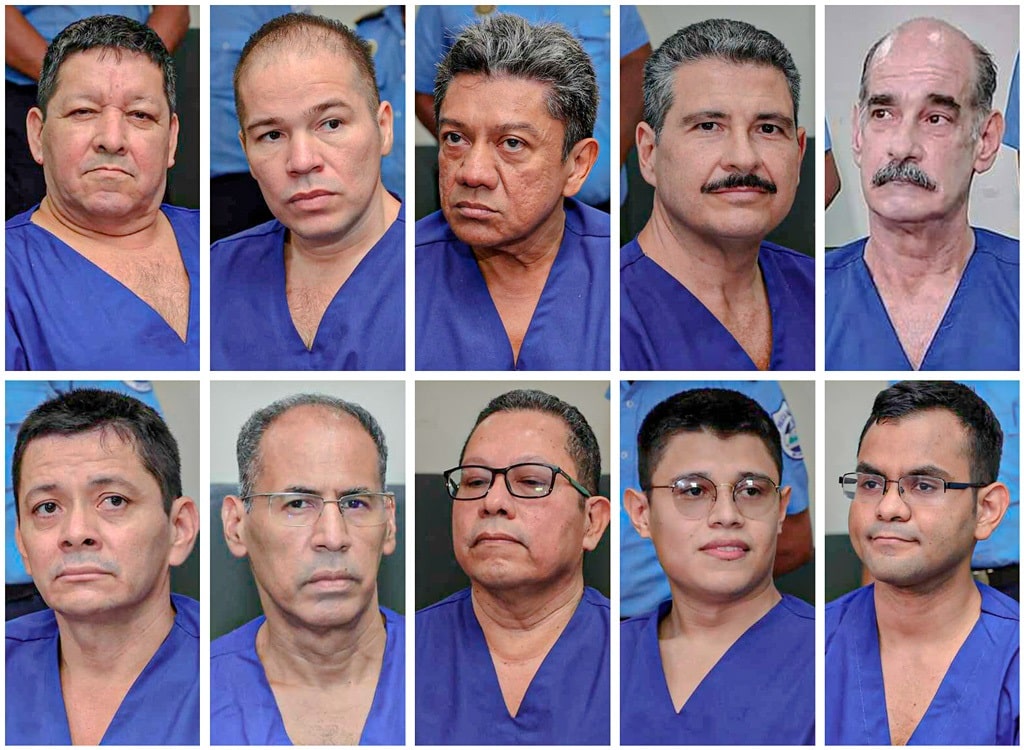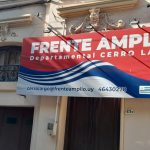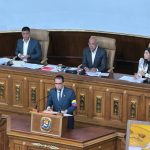The physical and psychological torture suffered by Nicaraguan political prisoners in the prisons of the Daniel Ortega and Rosario Murillo regime leave irreparable damage to their health. Some of these effects, such as the visible physical deterioration, were exhibited by the dictatorship through photographs and videos of 27 prisoners of conscience, released between August 30 and September 1, 2022, after 15 months of isolation in cells. from El Chipote.
Some of the methods of torture denounced by relatives of prisoners of conscience are:
- prolonged isolation
- The solitary confinement
- Alteration and modification of sleep patterns
- sunlight deprivation
- Limited or poor medical care
- Food deplorable in quantity and quality
- Limitation of family visits and continuous interrogations without legal assistance.
CONFIDENTIAL recounts the methods of torture against political prisoners carried out by the Ortega regime in the prisons of La Modelo and El Chipote, and their effects on physical and mental health of the 205 prisoners of conscience in the country, according to the last count of the Mechanism for the Recognition of Political Prisonerswith data as of August 2022.
Methods of torture against political prisoners in Nicaragua
All the conditions of torture against political prisoners in Nicaragua damage their bodies and cause injuries, often irreparable, to their minds and health, warns several analyzes, including a recent report by the Nicaraguan Medical Unit. These are the methods of torture and its consequences on political prisoners.
prolonged isolation
Prolonged isolation has “a profound impact on health and can cause mental illness,” warns the Medical Unit. Although the extent of psychological damage varies and will depend on individual factors, such as pre-existing health problems; prison conditions, time out of cell and level of human contact, context of isolation and duration of isolation; most individuals in isolation show “some form of disturbance.”
The psychological damage derived from isolation It manifests itself through anxiety attacks, depression, anger, cognitive disorders, perceptual distortions, paranoia and psychosis. “A detainee who is intensively interrogated and then suddenly locked alone in a cell, even for a few days, may present the aforementioned symptoms from the first or second day,” the document says.
Although the psychological effects are the most common of isolation, physical damage has also been reported, ranging from gastrointestinal, cardiovascular and genitourinary problems, migraines and profound fatigue, heart palpitations, excessive and sudden sweating, impaired vision, poor appetite, weight loss. and sometimes diarrhea, lethargy, weakness, tremors, feeling cold, even aggravation of pre-existing medical problems.
The sports writer and political prisoner, Miguel Mendoza, suffers from several chronic illnesses that have worsened while in prison. //Photo: Government.
solitary confinement
Incommunicado detention represents another form of torture against political prisoners in Nicaragua, since they are not allowed any contact with the outside world to damage their mental and moral integrity.
Consequence of this cruel and inhuman treatment are some psychotic symptoms such as hallucinations and paranoia, panic attacks, violent behavior, depression, apathy and lethargy. But above all, the medical report warns, solitary confinement causes a profound impact on people’s ability to reconnect with other human beings, breaks the affective bond with the family, which is very necessary in situations of this nature that allow to mitigate the moral pain caused by arbitrary detention
Incommunicado detention can also lead to a deterioration in the person’s general state of health, aggravation of pre-existing illnesses due to the stress of confinement, inadequate or lack of medical care, lack of adequate food and medication, among others.
Bad nutrition
In the case of those detained in El Chipote, relatives of political prisoners report that the food is insufficient in quantity and deficient in energy and nutritional quality, basically rice and beans. All of them have had significant weight loss, they look weak, emaciated, skinny and shaky. In addition, they have chronic conditions such as hypertension, diabetes, heart disease that require a specific diet.
The lack of nutrients affects people’s behavior, emotions come to the surface more easily than usual, irritability, anxiety or depression problems arise. Malnutrition also affects the nervous system, which is why it is common for alterations in cognitive capacity to be generated, reducing the emission of elaborated responses, the ability to plan and make decisions, judgment or the ability to concentrate, and insomnia.
On a physical level, the most visible effects are malnutrition, altered metabolism of food, appearance of constant diarrhea, loss of muscle mass and decreased energy levels, bone fragility, amenorrhea, weakening of the immune system, irritation and dental bleeding. , edema, cardiovascular disorders, decreased gastrointestinal function, impaired respiratory capacity, slow metabolism, pancreatic and liver dysfunction, kidney problems and anemia.

sleep deprivation
The sleep deprivation reported by political prisoners also has a negative impact on their physical and mental health. In some cases they are prevented from sleeping due to long interrogations, at any time of the night; on other occasions because in the cells they do not turn off the lights at any time, causing a state of anxiety and hyperalertness. All these methods constitute a system that aims to wear down, break down and, finally, alter the faculties and the personality.
This sleep deprivation can affect people’s performance, including their ability to think clearly, react quickly, and create memories. This type of torture also affects mood and contributes to irritability, depression and increased anxiety.
It also generates fatigue, tiredness, excessive daytime sleepiness, produces changes at the metabolic, endocrine and immune levels. It also leads to glucose intolerance and diabetes, increased sympathetic nervous system activity and hypertension, reduced leptin secretion, and obesity.
sunlight deprivation
The political prisoners of the regime are also not allowed a minimum of time outdoors, so their access to sunlight and fresh air depends on their jailers. This situation has also left serious consequences on their physical and mental health.
Consequences of the monotony of confinement prisoners of conscience experience low motivation, depression, greater stress, less energy, irritability, apathy or sadness, a greater sense of loneliness, depersonalization or alteration of personal image, frustration and feelings of guilt.
They also have muscle tension, decreased and weakened body function, vitamin D deficiency, which in adults can cause weak bones, bone pain and muscle weakness, and osteoporosis. Vitamin D deficiencies are also associated with a higher risk of respiratory tract infections, autoimmune diseases or allergies.
Terrible prison conditions
The conditions in which political prisoners are held violate human dignity, according to complaints from their families. The cells do not have ventilation, the lighting is basic, there are no conditions for personal hygiene, they do not have adequate sanitary services and they endure cold at night due to the lack of sheets and in some cases without a mattress.
The mere fact of remaining locked up in these types of conditions generates anxiety, decreased self-esteem, loss of intimacy, lack of control over one’s own life, lack of expectations, loss of the image of one’s own body due to the total lack of intimacy and lack of motivation for personal hygiene.
Prisoners of conscience also experience a deterioration in their general state of health, the appearance of dermatological diseases, an increase in respiratory and gastrointestinal problems, weight loss due to cold, and sensory problems in vision, taste, and smell.

















